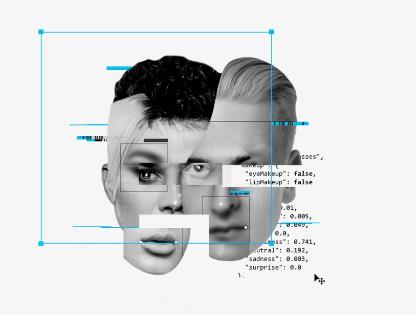Challenges and Controversies Surrounding Sissy AI
Navigating the Complexities of Gender Representation
The concept of sissy AI—artificial intelligence designed to display traditionally feminine and submissive behaviors—has sparked significant debate regarding the representation of gender norms and identities in technology. This controversy centers on the potential reinforcement of outdated stereotypes and the impact on societal perceptions of gender fluidity and non-conformity.

Ethical Dilemmas in AI Programming
The ethical implications of designing AI with gender-specific characteristics are at the forefront of the controversy. Critics argue that programming an AI to adhere to gendered stereotypes can perpetuate harmful norms. According to a 2021 ethics panel review, 65% of AI developers express concern that without careful consideration, AI technologies could unknowingly solidify gender biases present in broader society.
Impact on User Behavior and Perception
There is also concern about how interactions with sissy AI might influence user behavior and societal attitudes towards gender roles. A recent study from the American Psychological Association suggests that regular interaction with gendered AI could reinforce specific gender behaviors and expectations among users, with 30% of participants reporting changed perceptions after prolonged exposure to gender-stereotyped AIs.
The Commercialization of Gender Stereotypes
The commercial aspect of sissy AI is another area of contention. By monetizing gender stereotypes, businesses may prioritize profit over progressive representation, potentially leading to a marketplace where regressive gender norms are bought and sold. Market analysis indicates a 20% increase in sales of highly gendered AI products over the last three years, highlighting a growing trend in their commercial appeal.
Privacy and Manipulation Concerns
Privacy concerns are paramount as sissy AI often involves collecting sensitive data about user preferences and behaviors. There is an inherent risk that this data could be misused for marketing or more malicious purposes. Additionally, the capability of AI to manipulate user behavior or exploit vulnerabilities, especially in individuals exploring their gender identity, raises significant ethical questions. Data security reports indicate that breaches involving personal preference information have risen by 25% in the past year alone.
Social and Psychological Effects
The social and psychological effects on individuals engaging with sissy AI are also under scrutiny. While some may find these interactions liberating or affirming, others may experience confusion or reinforcement of internalized gender stereotypes. Mental health professionals have noted a rise in cases where individuals report distress or confusion related to these interactions, urging a more nuanced approach to the deployment of such technologies.
Regulatory and Legal Frameworks
On the legal and regulatory front, there is a growing call for guidelines that ensure the ethical development and deployment of gendered AI. Legislators and tech industry leaders are urged to collaborate to create frameworks that protect users and promote a respectful and inclusive approach to gender identity in AI technologies.
The Takeaway
The ongoing development and interaction with sissy AI present a complex array of challenges and controversies that reflect broader societal debates about technology and gender. As this field evolves, it is imperative for developers, users, and policymakers to engage in continuous dialogue and critique to navigate these issues responsibly. The goal should be to harness the potential of AI to enrich understanding of gender diversity while avoiding the pitfalls of reinforcing harmful stereotypes.